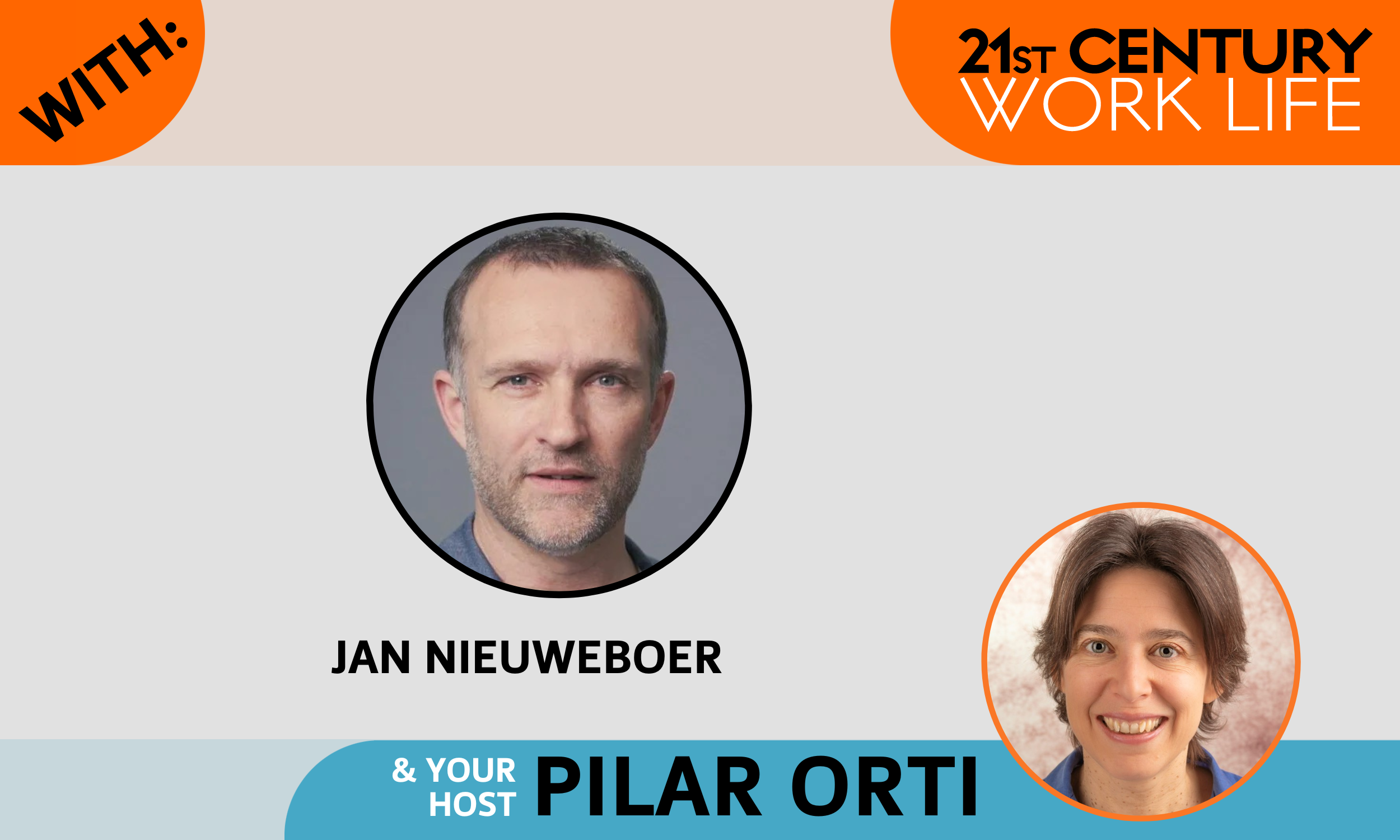WLP335 Designing the Hybrid Model at Rabobank
In this episode, Pilar talks to Jan Nieuweboer, senior consultant on hybrid work at Rabobank, and spokesperson for the Future of Work and Hybrid Working. He describes how plans for changing the ways of working at Rabobank were accelerated by the pandemic, and how the working model has evolved.
In today’s episode, Jan Nieuweboer shares Rabobank's journey towards implementing a hybrid work model.
Rabobank is a Dutch bank founded 125 years ago as a cooperative for farmers. Despite becoming a more standard bank due to EU regulations, Rabobank still maintains a cooperative mentality and culture. The bank has 34,000 employees based in the Netherlands, and 12,000 more globally, serving clients worldwide.
Jan has worked at Rabobank for 13 years in HR, focused on learning initially and then more broadly on innovation and the future of work. Prior to the pandemic, Jan's team had already been researching and preparing the organisation for a future with more agile, complex types of work. COVID-19 massively accelerated changes that Jan had projected would take years to unfold.
When lockdowns began, Jan convinced leadership to view the pandemic as an opportunity to test and accelerate their vision for the future of work. He assembled a cross-functional team to design a hybrid approach, incorporating diverse perspectives from HR, IT, facilities management, finance, and other key departments.
The team started by extensively surveying and listening to employees to understand their needs and preferences regarding remote work. This input shaped a hybrid model aimed at balancing collaborative work in the office with focused individual work at home.
Rabobank then ran an experiment temporarily converting part of an office building into a more agile workspace without assigned desks. This revealed how physical workspace design intrinsically impacts team behaviours and mindsets. Employees in the old environment reverted to old habits, while those in the new space questioned old ways of working.
Jan Nieuweboer
Follow up surveys showed 95% of Rabobank employees support ongoing hybrid work, appreciating the autonomy to balance collaboration and focus. However, the organisational change has not been easy. Many teams are still struggling to adapt their rhythms, interactions, and norms to a hybrid setting.
Rather than mandating set office days, Rabobank has empowered teams to decide when they need to meet in person, providing guiding principles but not top-down policies. Despite discomfort, leaders must embrace this team-driven approach.
The three principles Rabobank identified are: fully utilise digital collaboration tools, plan regular in-person team time, and maintain internal networks. The global rollout varies across Rabobank's international offices based on local needs.
A clear benefit Rabobank has realised is hybrid work has enhanced their employer brand and talent attraction, drawing those seeking flexibility. However, Jan sees hybrid work only as an incremental step towards the larger future of work transformation.
Jan believes hybrid work, combined with AI, automation, and other technologies will enable the next level of performance improvement. But first, leaders need to support employees through this plateau of organisational change.
Rabobank's hybrid transition required extensive employee listening, experiments to change mindsets, embracing team autonomy over control, and focusing on long-term productivity - not just location. Their winding journey provides helpful insights for any organisation navigating this new world of work.
Connect with Jan over at LinkedIn.
Find out more about Rabobank’s Hybrid Work on their website.
https://rabobank.jobs/en/hybrid-working-at-rabobank/
If you like the podcast, you'll love our monthly round-up of inspirational content and ideas:
(AND right now you’ll get our brilliant new guide to leading through visible teamwork when you subscribe!)


